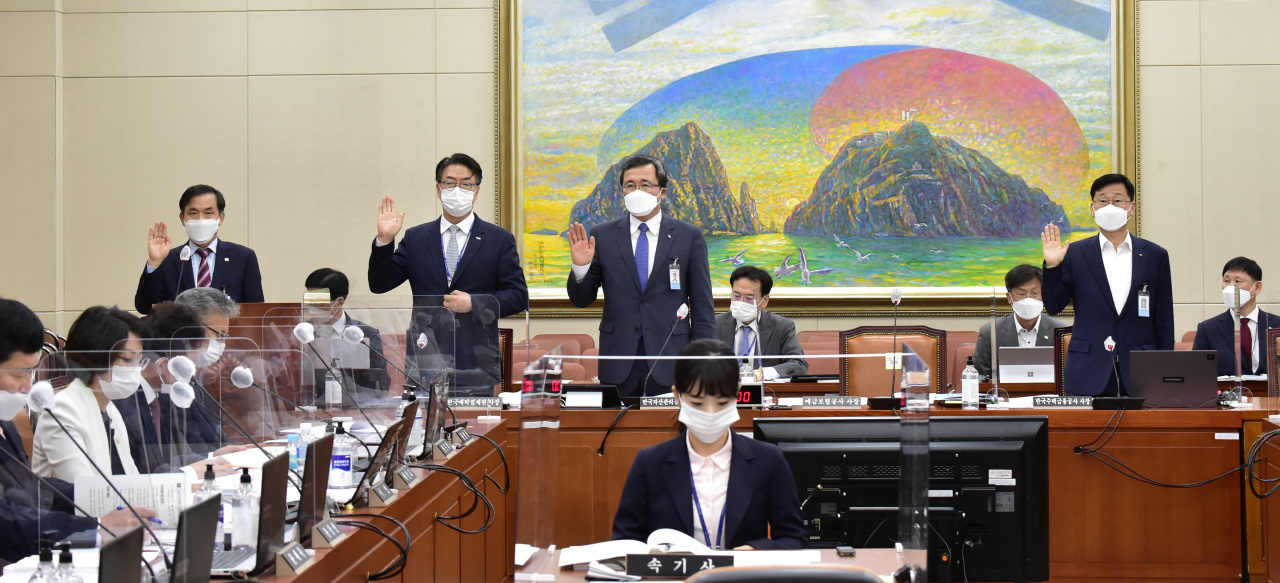 |
The chiefs of key state-run financial corporations attend the parliamentary finance committee's audit on Tuesday. (Yonhap) |
South Korea’s major financial state-owned corporations turned out to have imposed excessive interest amounts that far exceed the principal upon small-sized debtor businesses, raising skepticism about their “inclusive finance” policy functions, data showed Tuesday.
According to data submitted to Rep. Min Hyung-bae, lawmaker of the ruling Democratic Party of Korea and a member of the parliamentary finance committee, the four state-owned companies affiliated with the Financial Services Commission held some 1.3 million bonds in which interest balance outran principal as of end-August.
The four companies are the Korea Asset Management Corp., Korea Housing Finance Corp., Korea Credit Guarantee Fund and Korea Deposit Insurance Corp.
The interest total for the corresponding bonds came to 149.26 trillion won ($130.97 billion), which was 281 percent of the principal total of 53.92 trillion won.
Holding the highest interest-to-principal ratio was the KDIC-affiliated KR&C, with 43.68 trillion won, or 369 percent, of the 16.38 trillion-won principal.
Another problem is that over 110,000 bonds have been redeemed with interest amounts far surpassing the principal, imposing a heavy burden on borrowers that are mostly small-sized enterprises, the lawmaker pointed out.
From the beginning of 2017 up to August this year, 110,762 such bonds have been fully redeemed. The principal total came to 882.7 billion won, while the interest reached 2.2 trillion won, or 249 percent of the principal.
It was also KR&C that topped the interest-to-principal ratio among these fully redeemed bonds, with 301 percent.
One of the key functions of these financial state-owned corporations is to provide guarantees and loans to cash-strapped or low-credit small enterprises in the form of bonds, take the repayment liability in case of default and withdraw funds directly from the debtor.
When repayment is unlikely, the common practice is for the creditor to partially renounce the due bonds and extend the statute of limitations for the remaining amount, taking into account the individual financial circumstances of the small businesses.
“To impose interests that far surpass the principal is totally against the inclusive finance policy direction,” said Rep. Min.
“Financial public corporations should lower the overdue interest rate, adjust their pending bonds and partly give up withdrawal when interest is excessive.”
By Bae Hyun-jung (
tellme@heraldcorp.com)





![[Exclusive] Hyundai Mobis eyes closer ties with BYD](http://res.heraldm.com/phpwas/restmb_idxmake.php?idx=644&simg=/content/image/2024/11/25/20241125050044_0.jpg)
![[Herald Review] 'Gangnam B-Side' combines social realism with masterful suspense, performance](http://res.heraldm.com/phpwas/restmb_idxmake.php?idx=644&simg=/content/image/2024/11/25/20241125050072_0.jpg)

